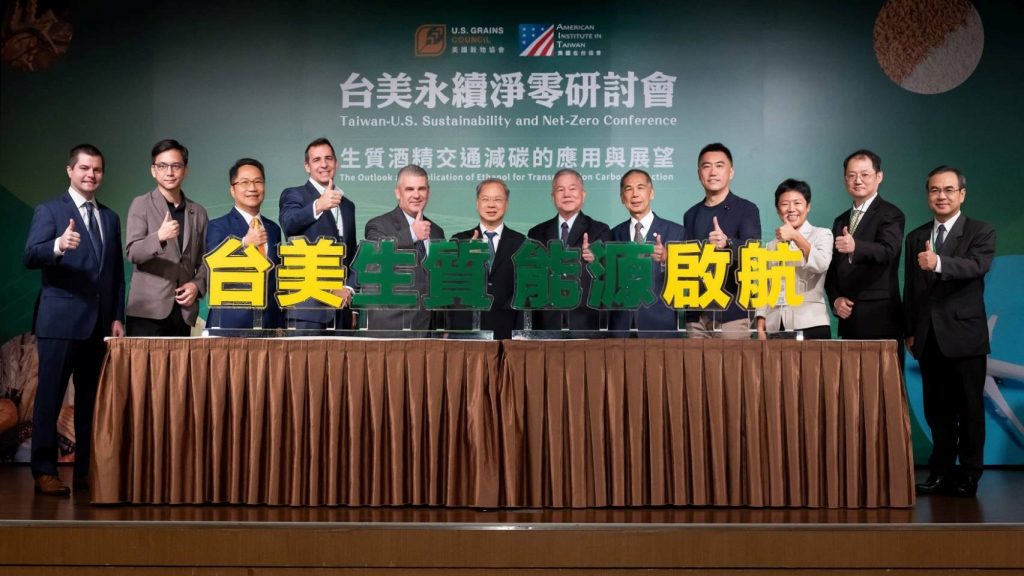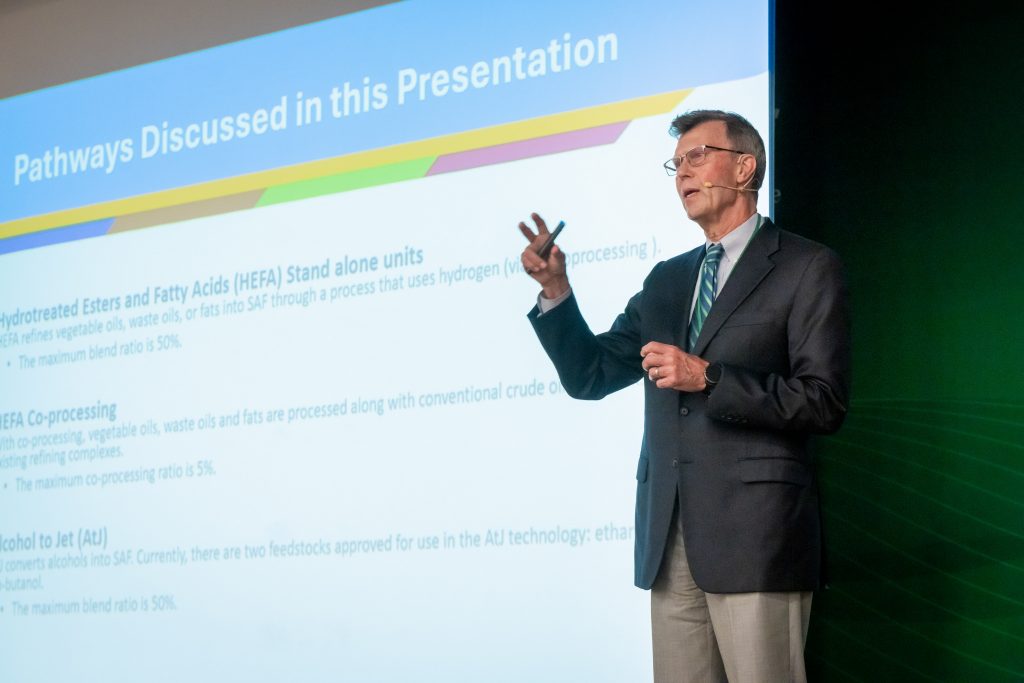Last week, the U.S. Grains Council (USGC) and the American Institute in Taiwan (AIT) jointly organized a conference on the use applications and sustainability benefits of ethanol in the transportation sector. The Council also signed a memorandum of understanding (MOU) with Taiwan’s largest state-owned oil refinery, Chinese Petroleum Corp Taiwan (CPC), agreeing to mutually pursue research initiatives and technical exchange programs with the goal of introducing gasoline blended with 10 percent ethanol (E10) in Taiwan.
“Since 2007, CPC Taiwan has offered E3 at numerous fuel stations but there has been lack of supportive policy to assuage consumer fears about engine damage from ethanol as well as costs for ethanol imports and infrastructure upgrades,” said Michael Lu, USGC director in Taiwan. “However, the government has gradually realized that relying solely on electric vehicles to reduce transportation carbon emissions will not achieve its 2050 net-zero goal and strongly encouraged the Council’s MOU with CPC Taiwan to facilitate biofuel industry growth here.”
Lu, USGC Regional Ethanol Consultant Kent Yeo and USGC SAF Consultant Mark Ingebretson represented the Council at the event, which featured presentations on the needs of the Taiwanese transportation industry and from U.S. producers and experts on the benefits and availability of U.S. ethanol.
AIT Ag Section Chief and Acting Deputy Director Erich Kuss offered a welcome address to attendees and Secretary General Kung Ming-Hsin remarked that Taiwan has mobilized to move towards a net-zero future, which will prominently feature electrification of vehicles and carbon-free transportation. However, in many cases like for rural consumers, blending gasoline with ethanol is the best carbon reduction option for road vehicles.
Ingebretson then spoke to participants about the latest developments in alcohol-to-jet (ATJ) technology and the current supply and economic efficiency of processing U.S. corn into biofuel. The afternoon’s session focused on road uses of ethanol, including a presentation from Yeo regarding recent success stories in biofuel policy advancements in the Southeast Asia (SEA) region.
“The strong interest in ethanol in Taiwan, including from top officials in its government and its oil industry, is very encouraging as we continue to push for higher ethanol adoption in the transportation sector here. Taiwan stands ready to adopt a higher ethanol blending rate, and since it is already a major oil refining hub, the country boasts highly-capable storage and blending facilities and exhibits excellent standards for fuels handling.” Yeo said. “I’d like to extend my thanks to the AIT for its partnership at the conference and reiterate the Council’s commitment to continue supporting Taiwan policymakers and industry in their decarbonizing journey through technical expertise and advisory in the bioethanol space.”
Learn more about the Council’s work in Taiwan here.
About The U.S. Grains Council
The U.S. Grains Council develops export markets for U.S. barley, corn, sorghum and related products including distiller’s dried grains with solubles (DDGS) and ethanol. With full-time presence in 28 locations, the Council operates programs in more than 50 countries and the European Union. The Council believes exports are vital to global economic development and to U.S. agriculture’s profitability. Detailed information about the Council and its programs is online at www.grains.org.


